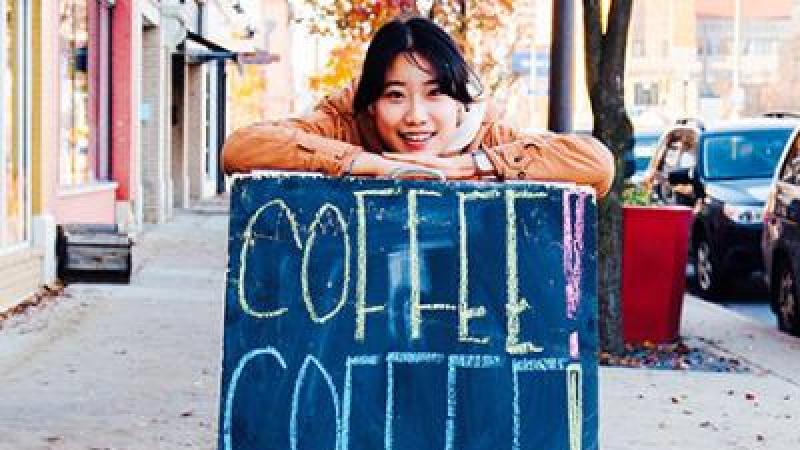Living Between Two Cultures

Olive Jung, Cleveland Ohio; Photo Credit: Lyba Zia
It’s hard. Moving between Korea and the States every 4-5 years while growing up felt like moving between sea and land, having to re-learn how to breathe every time because the fundamentals of breathing and surviving are different between the two worlds. One could say this is a darker version of Disney’s The Little Mermaid—and while Ariel found her happy ending, I am still on my way to find mine.
I didn’t really come across the acronym AANHPI (Asian American, Native Hawaiian, and Pacific Islander) or concepts like anti-Asian hate while growing up, but I felt the effects. I had classmates who refused to play with me because I didn’t look or act like them; this occurred even though California’s Bay Area was more open and progressive regarding immigrants at the time. As a 10-year-old, it was difficult to process that, and in looking back as an adult it dawns on me that children, having likely learned from their parents, help perpetuate stereotypes and negative attitudes toward different skin colors which maintain boundaries and evoke the phenomenon of othering. In Korea, I still felt isolated, because while I looked like others, the way I processed and interacted with the world was so different—asking how and why things happen the way they do—that I was seen as being disobedient, going against authority. I even had distant relatives calling my parents after large family gatherings demanding that I be taught to stop asking questions and learn how to take things in stride.
Over time, I learned to switch off aspects of my personality to fit the two polar opposite [cultural] molds that each society expected from me. With that, my mental health took a dive. I struggled with anxiety and depression and constantly asked myself if I was being the Asian American or the Korean I was expected to be in two distinctly separate societies. Those who know me now would never be able to picture that version of me—someone who was struggling so hard to fit in.
By the time I graduated college, I was a bit of a cultural mess; constantly code-switching1 took an emotional and physical toll on me. It continued while I was working as a post-baccalaureate IRTA fellow, and while I was a medical student in Ohio. The noise has continued to worsen, especially with heightened xenophobia and the onset of the recent pandemic.
A few months into the pandemic, I realized that this noise and the surrounding darkness was not okay, and that I was not okay. Why did I have to sacrifice my well-being to fit the mold? We are taught that everyone has a unique DNA sequence, so no one should be expected to fit into an unrealistic one-size-fits-all mold. I wish I could say that now, after a personal reckoning, I had a Disney-esque ending, but this is real life, and I am still processing these difficult experiences. I’m still on a journey of self-discovery and re-learning who I really am, but I am slowly getting back on my feet and also learning how to stay grounded. It’s a work in progress (albeit on an upward slope).
Being Korean American is not the only thing about me; I am more than what you see. The things I’ve learned, the acquaintances I’ve made, and my unique thought process all play a part in shaping who I am. That’s why I want to end with this line of thought for our AANHPI Heritage Month: we are not a monolith. We are human beings whose collective experience as AANHPI is too broad to define. We are so diverse and large as a group that simple census categorization cannot contain us and our life journeys. My life experience will never be the same as yours and vice versa. We are all different—we are artists, musicians, scientists, lawyers, magicians, librarians, politicians, and this list goes on.
I hope that this month we get to fully appreciate our incredibly large, unique, cacophonic, and beautiful AANHPI family, and to truly value our diverse experiences while empathizing and celebrating our growing pains, journeys, and our successes.
Sources
Code-switching (noun) - the modifying of one's behavior, appearance, etc., to adapt to different sociocultural norms
Do you have a story idea for us? Do you want to submit a guest blog? If it's about equity, diversity, or inclusion, please submit to edi.stories@nih.gov.
For news, updates, and videos, subscribe or follow EDI on: Twitter, Instagram, Blog, YouTube.


